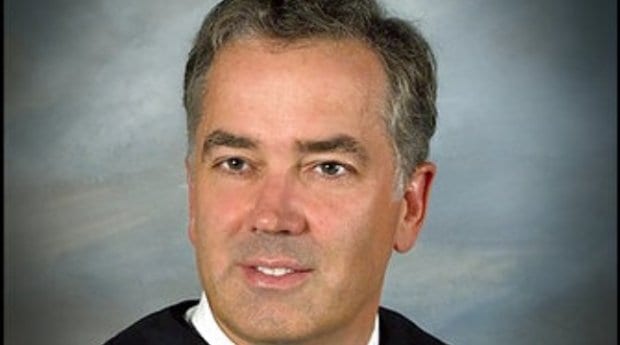Less than a day after Judge Michael McShane struck down Oregon’s gay-marriage ban, Judge John Jones has ruled that same-sex couples in Pennsylvania “deserve equal dignity in the realm of civil marriage,” noting that “we now join the twelve federal district courts across the country” who have arrived at that conclusion.
“[W]e hold that Pennsylvania’s Marriage Laws violate both the Due Process and Equal Protection Clauses of the Fourteenth Amendment to the United States Constitution. Because these laws are unconstitutional, we shall enter an order permanently enjoining their enforcement. By virtue of this ruling, same-sex couples who seek to marry in Pennsylvania may do so, and already married same-sex couples will be recognized as such in the Commonwealth,” Jones writes in his May 20 ruling.
Jones did not issue a stay of his ruling pending a possible appeal, meaning that gay couples can apply for marriage licences.
While Governor Tom Corbett defends the state’s ban, Attorney-General Kathleen Kane believes it is unconstitutional.
In 1996, Pennsylvania amended its legislation to prevent gay couples from marrying, with overwhelming majorities in the state’s House and Senate passing the measure. An additional provision also banned recognition of gay marriages that had taken place in other states or foreign jurisdictions.
“The issue we resolve today is a divisive one. Some of our citizens are made deeply uncomfortable by the notion of same-sex marriage. However, that same-sex marriage causes discomfort in some does not make its prohibition constitutional,” Jones rules. “Nor can past tradition trump the bedrock constitutional guarantees,” he adds. “Were that not so, ours would still be a racially segregated nation according to the now rightfully discarded doctrine of ‘separate but equal.’”
Jones concludes, “Similarly, in future generations the label same-sex marriage will be abandoned, to be replaced simply by marriage. We are a better people than what these laws represent, and it is time to discard them into the ash heap of history.”


 Why you can trust Xtra
Why you can trust Xtra


